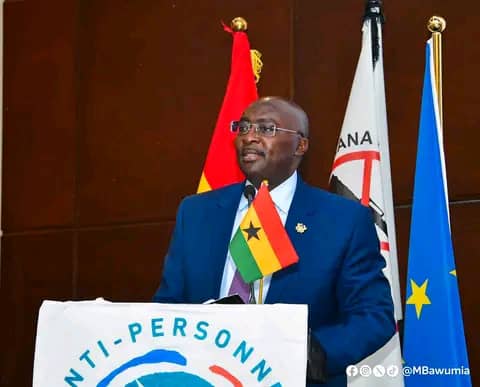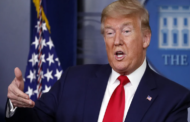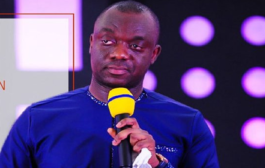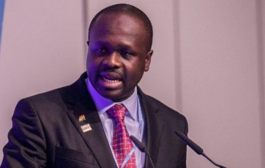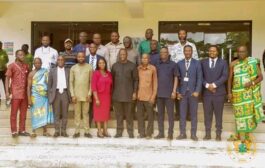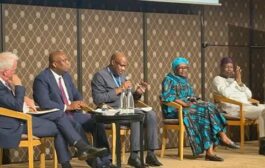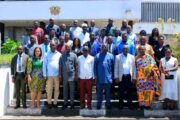In the heart of every Ghanaian, there is a deep understanding that leadership is not merely about occupying a position of power but about the integrity, vision, and ethics that guide one’s decisions and actions. As a child, I remember hearing wise words from my elders, particularly my father, who often said that a true leader is one whose actions reflect their principles and values. “Leadership is not about self-gain; it is about serving the people,” he would always remind me. Today, as I closely examine the political journey of Dr. Mahamudu Bawumia, Ghana’s Vice President and NPP Flagbearer, I realize just how much those words resonate. Dr. Bawumia is more than just a political figure; he is the embodiment of ethical leadership that Ghana needs now more than ever.
A Legacy of Ethical Leadership
Dr. Mahamudu Bawumia has proven that ethical leadership is not just about making promises but about taking real, tangible steps to improve the lives of the people. His leadership is marked by unwavering commitment to serving the greater good, and his track record speaks volumes. Over the years, Dr. Bawumia has led numerous initiatives that have significantly transformed Ghana’s digital landscape, economy, and public services.
Dr. Bawumia’s 33 Transformative Achievements
Among his many accomplishments, Dr. Bawumia’s leadership has delivered projects that align with his vision for a modernized and inclusive Ghana. Here are 33 key initiatives that demonstrate his commitment to Ghana’s digital transformation and economic growth:
1. Digital Address System: Launched in 2018, this system revolutionized the way Ghanaians are located, allowing precise identification using digital addresses.
2. National ID System: Introduced in 2018, the biometric National Identification system ensures secure identification and inclusivity in Ghana’s economy.
3. Mobile Money Interoperability: Rolled out in 2018, this initiative facilitates seamless mobile money transactions, promoting financial inclusion across Ghana.
4. Paperless Port System: Implemented in 2017, this system was designed to reduce corruption, inefficiencies, and delays in clearing goods at Ghana’s ports.
5. E-Justice System: Launched in 2018, it digitized the judicial process to promote quicker and more transparent legal proceedings.
6. E-Procurement System: Established in 2018, this electronic platform for government procurement promotes transparency and reduces corruption.
7. Mobile Banking and E-Transactions: Since 2017, Dr. Bawumia has championed the expansion of mobile banking to foster greater financial inclusion across the country.
8. Single Window System for Ports: Implemented in 2017, this system simplified the import/export process through digital means, making Ghana’s ports more efficient.
9. GhanaCard (National ID): Launched in 2018, this initiative integrates national identification with government services for easier access.
10. Digital Skills Development: Programs launched between 2017-2020 aimed at enhancing digital literacy and empowering the youth for the future economy.
11. Infrastructure for E-Government Services: Ongoing since 2017, this initiative focuses on building the infrastructure needed for more efficient and accessible public services.
12. E-Health Records: Piloted from 2018 in some regions, this initiative introduced electronic health records to improve healthcare management and patient care.
13. Electric Vehicle Incentives: Introduced in 2020 as part of Ghana’s Sustainable Energy Strategy, promoting the adoption of electric vehicles to encourage sustainable transport solutions.
14. GHLink (Digital Infrastructure): Launched in 2017, this project developed secure, efficient digital infrastructure for government operations and services.
15. School Management Information System (SMIS): Introduced in 2018, this digital platform improves the management of educational data and institutions.
16. Tax Collection System (GRA Digitalization): Rolled out in 2017, this overhaul of Ghana’s tax collection system has improved efficiency and accountability.
17. Digital Public Service Delivery: Ongoing initiatives, launched from 2017 which make public services more accessible through digital platforms, improving service delivery to citizens.
18. Integrated Financial Management Information System (IFMIS): Launched in 2017, this system improves public financial management for better accountability in government spending.
19 Mobile Money for Social Protection Programs: Launched between 2017 and 2018, this initiative uses mobile money platforms to distribute welfare funds directly to citizens.
20. Ghana Post Digitalization: Rolled out in 2018, this modernization of Ghana Post’s services integrates digital platforms for better service delivery and e-commerce.
21. Agricultural Digital Solutions: Launched between 2018 and 2020, these digital platforms provide farmers with better access to markets, financial services, and weather information.
22. Ghana Digital Transformation Agenda: Officially launched in 2020, this overarching plan drives the digitization of multiple sectors in the country.
23. Digital Land Registration: Started in 2018, this initiative digitizes land records to reduce conflicts and ensure secure land tenure.
24. Digital Financial Services: Expanded from 2017 onwards, this initiative enhances banking accessibility by expanding financial services via mobile phones and digital platforms.
25. E-Voting System: Advocated for a potential e-voting system to improve transparency and accessibility in future elections (2024 or beyond).
26. Solar Power Initiatives: Advocated for since 2017, this initiative promotes renewable energy, particularly solar power, to contribute to Ghana’s energy transition.
27. Public Sector Reforms: Ongoing since 2017, these reforms focus on digitizing key public services to improve efficiency and reduce bureaucracy.
28. Ghana’s Digital Transformation Fund: Established in 2020, this fund supports the country’s digital transformation initiatives.
29. Digital Economy Strategy: Launched in 2020, this strategy aims to build the infrastructure necessary for a thriving digital economy in Ghana.
30. Broadband Infrastructure Expansion: Ongoing efforts since 2017 to expand high-speed internet across Ghana, ensuring better connectivity.
31. Ghana Digital Services Hub: Announced in 2020, this project creates a digital ecosystem that fosters innovation and provides employment opportunities for the youth.
32. Smart Cities Project: Launched in 2020, this project supports the incorporation of smart technologies into urban planning for more sustainable cities.
33. Digital Skills Training for Youth: Launched between 2017 and 2020, this initiative provides training to equip the youth with the necessary skills for the digital economy.
A Visionary Leader for Ghana’s Future
Dr. Bawumia’s leadership is centered on progress, inclusion, and innovation. His initiatives have empowered the people of Ghana, ensuring that every citizen can participate in the country’s development. His ethical approach to governance prioritizes transparency and accountability, making him the ideal candidate to lead the country into the future.
A Commitment to Integrity
Dr. Bawumia’s leadership is characterized by his deep sense of responsibility, ethical decision-making, and his refusal to allow personal or political gain to outweigh the needs of the people. His actions speak louder than words, and his dedication to the betterment of Ghana is unmatched. Through his transformative initiatives and tireless efforts, Dr. Bawumia has earned the trust of the people.
Why Ghana Needs Dr. Bawumia
Ghana needs a leader who prioritizes the common good over personal gain, a leader who believes in transparency, integrity, and ethical governance. Dr. Bawumia is that leader. His leadership, defined by ethical values and visionary ideas, promises a bright future for the country one that is technologically advanced, economically empowered, and politically stable. His remarkable achievements in transforming Ghana’s economy through technology and digital innovation prove that he is not only a man of integrity but also the right leader to continue Ghana’s journey of progress.



